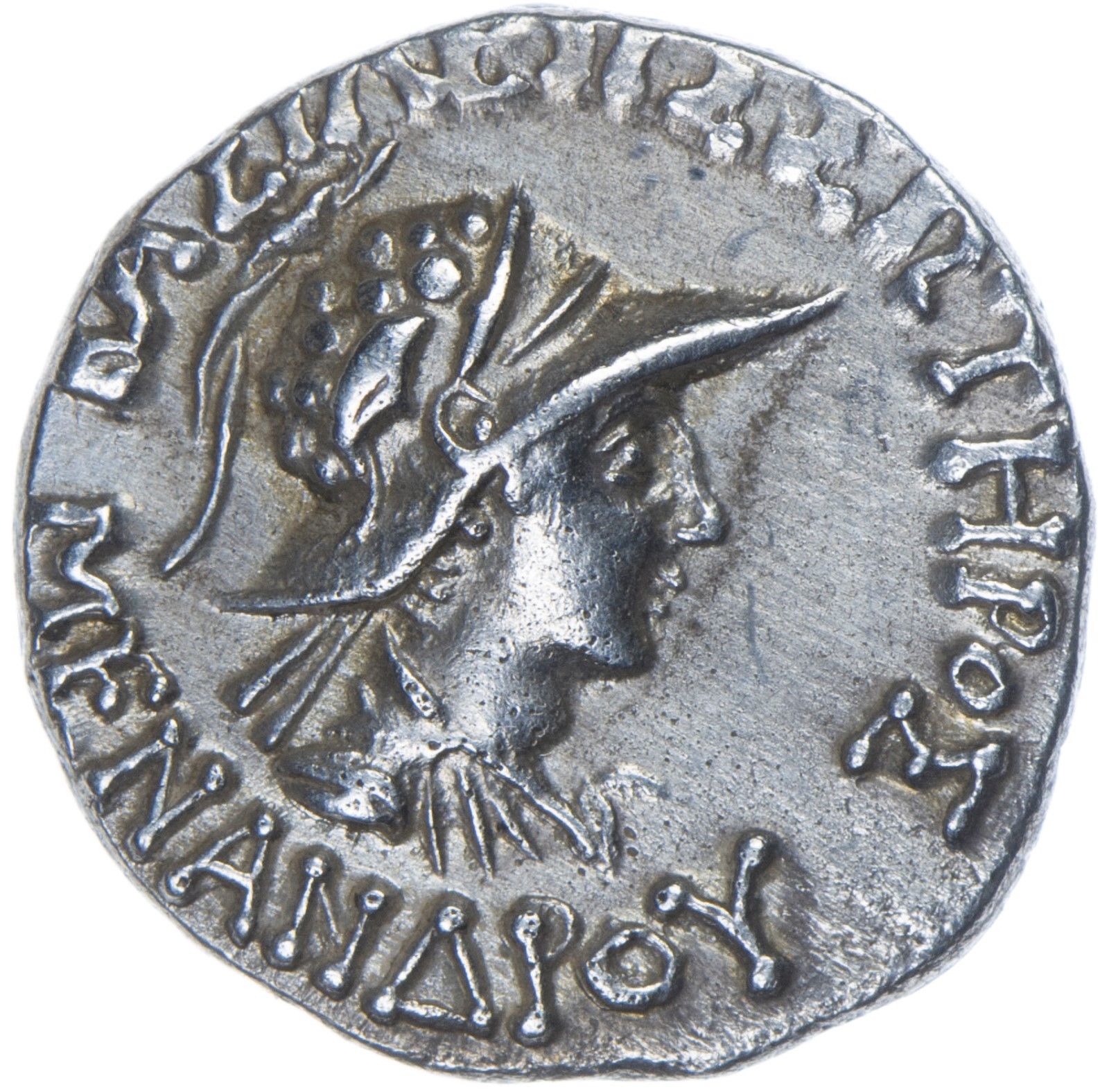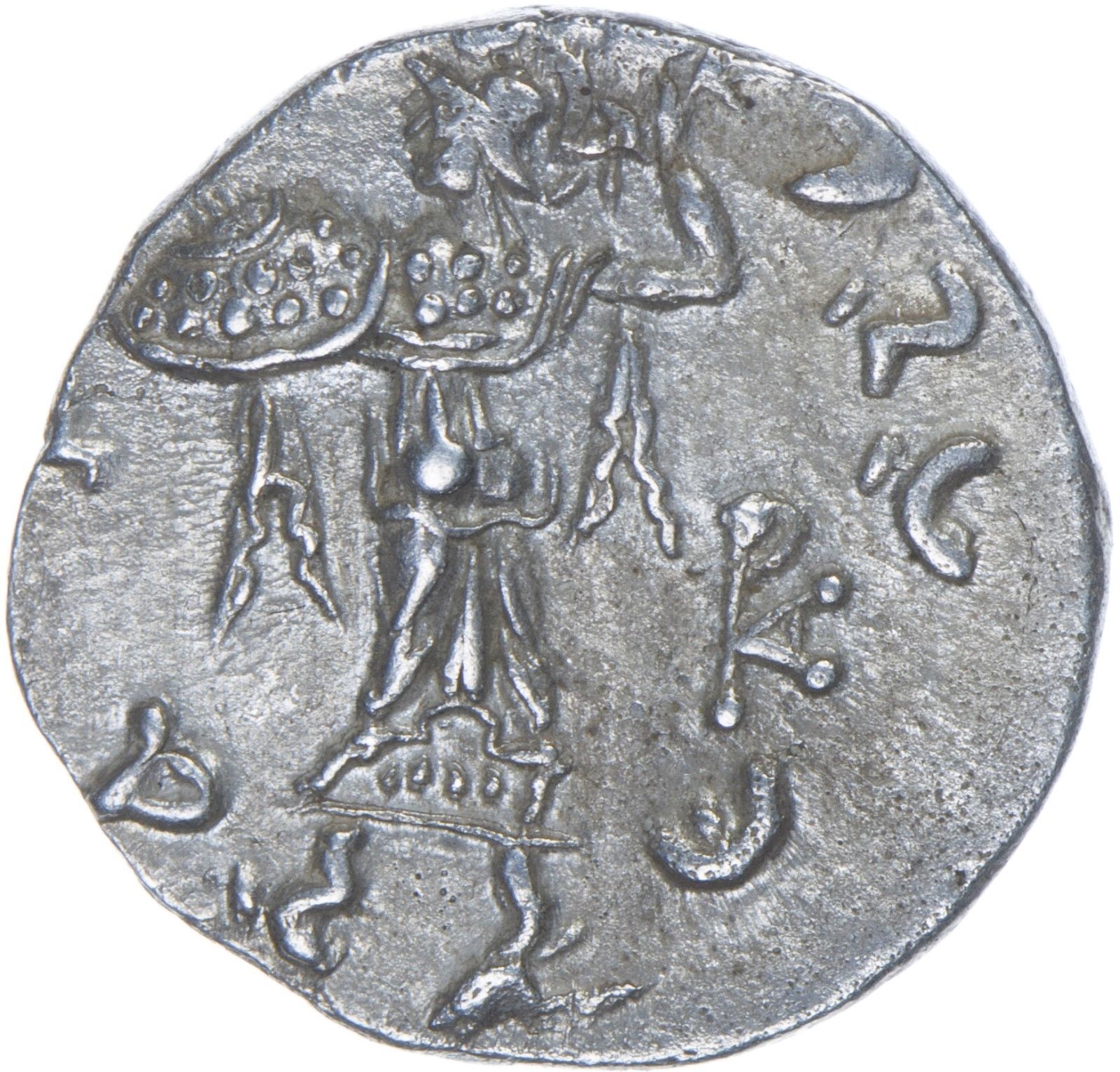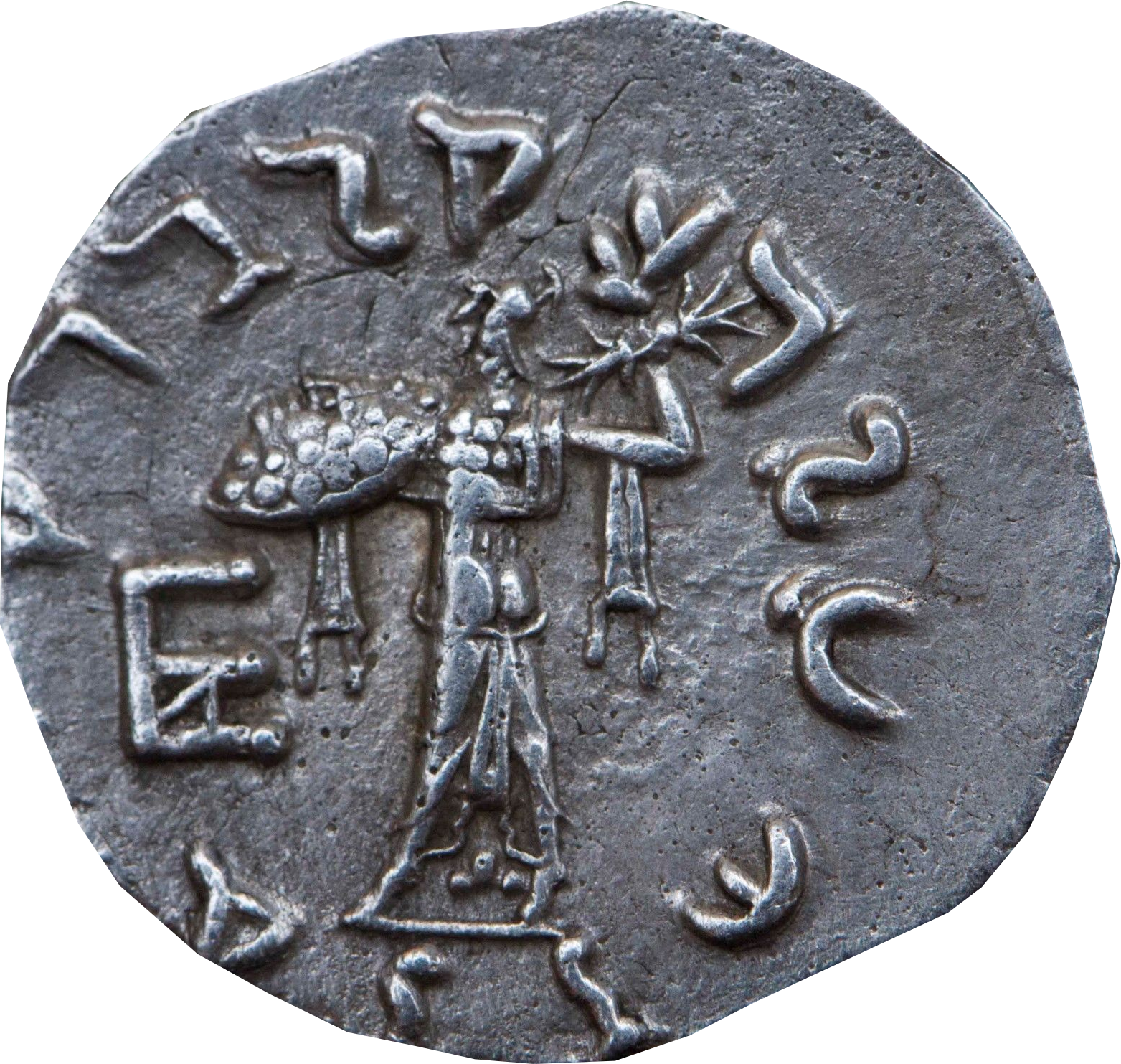Ancient Psychedelia: Alien Gods & Mushroom Goddesses
Online Book - Chapter 7, Page 94
Back to Online Book Mainpage / Next Page (Chapter 7, Page 95)
| Bactria was a historical area of Central Asia covering the area of Afghanistan, Tajikistan, and Uzbekistan. In 212 BC, in Macedonia, a Graeco-Bactrian governor, Euthydemus, had made himself king and set up an independent state. (1) Bactrian coins from this era show Athena wielding a thunderbolt and holding a mushroom cap, signifying the stem and cap. The thunderbolt later becomes a spear and the mushroom cap a shield in Roman times. Sometimes the hat is also depicted similar to the mushroom (49b; 56a). The fundamental sciences of astrology, math and medicine did not reach China enough to influence Chinese culture till around 1000 AD. In the year 869 AD, Amr b. Bahr al-Jahiz of Basra is quoted as having said: “I have found the inhabitants of India to have made great advancement in astrology and mathematics. In the science of medicine, also they are highly advanced. The Chinese do not possess the qualities which they have… With them originated mysticism and charms which counteract poisons. The origin of astronomical science goes back to the Indians.” (2)   (49b) Baktria Indo-Greek Menander I Soter c. 155-130 BC  (56a) Baktria Indo-Greeks Menander I Soter : wearing aegis over shoulder, brandishing spear c. 155-130 BC The Manichaeans were one of the first earth and goddess based mushroom consuming tribal societies in Asia to have been recorded in modern times, from what I have gathered. They appear to have aroused the anger of local authorities who sought control over social resources. The first mention of them is in Persia in the 3rd century AD. They appear to make up the basis for the Chinese subculture of mushroom worship, aka, Asian hippies. |
A speech from 1166, in memory to Lu Yu, was given which mentioned mushrooms, and it was not castigating the Manichaeans for eating them, it was because they ate so many of them they drove the market price up and that was the major complaint. However, there is commenting on their practice of using urine. Next, we read from this speech: “Since ancient time, the rise or cessation of banditry has been the result of famine caused by floods or drought. Pressed by cold and hunger men would assemble by a whistle to attack and pillage, but if appropriate steps are taken, they could easily be calmed and pacified and will certainly not become a source of worry to the court. However, perverse people practicing demonic sorcery deceive and beguile decent people during times of peace. They form into associations and remain settled, awaiting the right moment to rise. The harm which they cause is harder to fathom.” “Your servant humbly thinks that this type of people can be found everywhere. In Hai-nan they are called “People of Two Knots.” In Fukien they are called followers of the Religion of Light or “those who observe the Gati Fast,” and by various other titles. The Religion of Light is particularly prominent to the extent that it is practiced and disseminated by scholars, magistrates and soldiers. Its deity is called the Messenger of Light and it also has names of deities like the “Buddha of Flesh,” the “Buddha of Bones,” and the “Buddha of Blood.” Its followers wear white garments and black caps. They form into associations wherever they are. They possess false scriptures and demonic images and they even go to the extent of engraving print blocks for the dissemination of their scriptures. They falsely borrowed (the names) of the officials in charge of Taoism like Ch’eng Jo-ch’ing and others of the Cheng-ho period as revisers of their texts and (they also named) the Prefect of Fuchou, Huang Shang as supervisor of the engraving (of the print blocks).” “They regard the sacrifices to deceased grandfathers and fathers as an invocation to the (evil) spirits. They abstain completely from food which contains blood. They consider urine as holy water and use it for their ablutions. Their other demonic excesses cannot be easily enumerated. Since they burn frankincense, frankincense has risen in price. Since they eat ground mushrooms and tree fungi, these too have risen in price. Furthermore, because they practice these things together, they are like glue and lacquer. If perchance they should steadily rise (up in revolt) they would make one’s heart go cold (with fright).” (3) These people sound to me like modern hippies which an out-of-touch government cannot handle easily. It also appears that the Chinese leadership were already well on their way to becoming authoritarian under patriarchal influence. (1) Occidental Mythology, p, 402; Oriental Mythology, p. 296-98 (2) Soma, Wasson, p. 80; Muhammad Zubayr Siddiqi, (1959) Studies in Arabic and Persian Medical Literature. Calcutta: Calcutta University (3) Manichaeism in Central Asia and China, Samuel N.C. Lieu, 1998, page 155-56 |
Go Back to Page 93